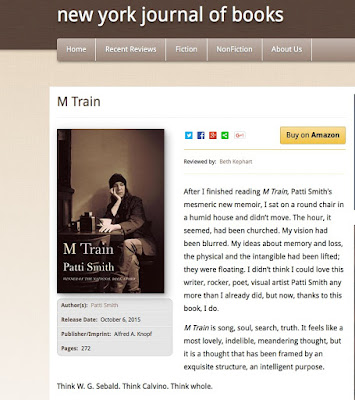It was Margo Jefferson, the great cultural critic, who first put my name in the New York Times. In a review of another's book, in a closing paragraph, she made mention of something I'd penned in solitude and put forward with innocence and didn't even understand as well as she seemed to.
She looked up and saw me, and I, discovering her snatch of words quite by accident, never felt such gratitude.
When I read earlier this year that Margo had written a memoir called Negroland, I wanted it at once, bought it when I could, and put it on the top of a pile called (in my mind), "the books you'll be allowed to read once you have completed your tour of duty with all known responsibilities."
Yesterday I was done with all known (until next week) responsibilities. I picked up Negroland. I read.
And oh my, oh now: this. Like H is for Hawk, like M Train, like My Life as a Foreign Country, Negroland is the kind of book that elevates not just its readers but the capital M Memoir itself. It's personal—and otherwise. It's I, You, We. It's inquiry, declaration, admission, confusion—the story of the impossible ideals, hurtful expectations, pleasant privileges, and chaotic undertows that have been all bound up with being a member of the black elite. It's a book by an esteemed critic who was "taught to distinguish (her)self through presentation, not declaration, to excel through deeds and manners, not showing off" and who then (but always judiciously, always for a higher purpose) allows us in.
In a book of anecdote, history, cultural expose, and yearning, we encounter, on almost every page paragraphs as searing as this:
Privilege is provisional. Privilege can be denied, withheld, offered grudgingly, and summarily withdrawn. Entitlement is impervious to the kinds of verbs that modify privilege. Our people had to work, scrape for privilege, gobble it down when those who would snatch it away weren't looking.And this:
Being an Other, in America, teaches you to imagine what can't imagine you. That's your first education. Then comes the second. Call it your social and intellectual change. The world outside you gets reconfigured, and inside too. Patterns deviate and fracture. Hierarchies disperse. Now you can imagine yourself as central. It feels grand. But don't stop there. Let that self extend into other narratives and truths.This year, when my beautiful son goes into bookstores he goes straight (his mother's child) to the memoir shelves. He, like me, views memoir as one of the best chances we have of broadening our vision, breaking down our walls, stepping out of our recklessly limited world view.
I have been taught by Margo Jefferson with her gorgeous Negroland. I have seen a little further. I have hurt a little more. I have been made grateful for both the seeing and the hurting.
0 Comments on Through NEGROLAND Margo Jefferson elevates the memoir form, and leaves me grateful, again as of 1/1/1900
Add a Comment




